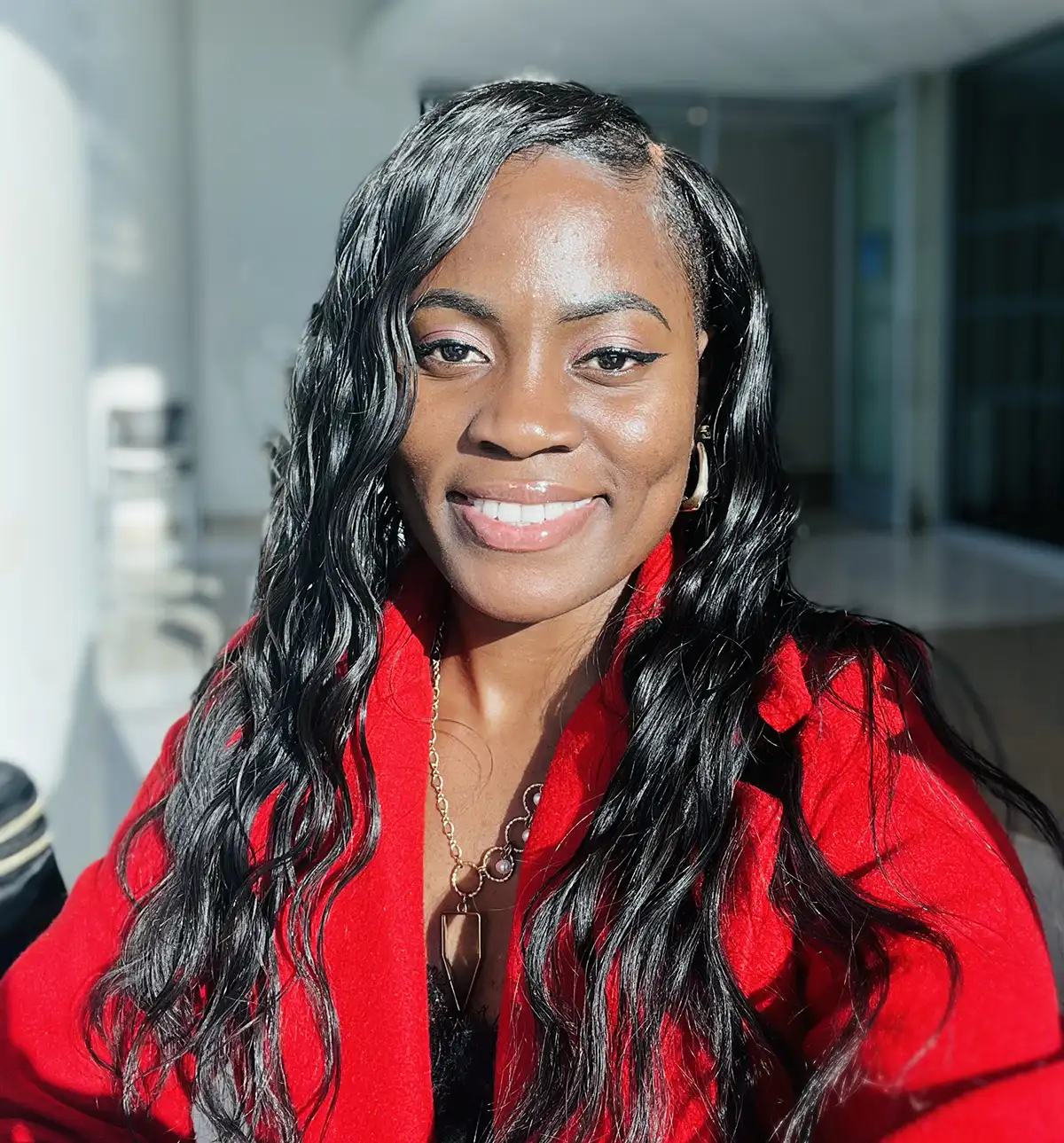CDC Bioinformatics fellow bridging gaps between laboratory research and public health implementation
Meet Grace Nabakooza

Grace Nabakooza, Ph.D., came into her fellowship with the goal of translating research data into valuable insights that directly influence public health and shape health policies in the United States and globally. (Photo Credit: Grace Nabakooza)
For over 10 years, Grace Nabakooza, Ph.D., conducted medical research in infectious diseases, immunology, molecular biology and bioinformatics in Africa and the United Kingdom. Throughout her experience, she noticed a gap between research and its translation into public health policies, inspiring her to seek opportunities where she could apply her skills to bridge the gap. Towards the end of her Ph.D. research, Nabakooza stumbled upon an Oak Ridge Institute for Science and Education (ORISE) fellowship opportunity in Bioinformatics at the Centers for Disease Control and Prevention (CDC) headquartered in Atlanta, Georgia.
The CDC Research Participation Programs are competitive educational and training programs designed to provide qualified students, recent graduates and university faculty opportunities to advance their expertise in project-specific CDC research, current public health research and developmental activities.
Nabakooza was placed with the Next-Generation Sequencing Core Laboratory (NGS-CL) and temporarily assigned to the Polio and Picornavirus Laboratory Branch (PPLB) during the 2022-New York Polio Outbreak Response, under the Division of Viral Diseases (DVD) at the National Center for Immunization and Respiratory Diseases (NCIRD). Her role focused on providing bioinformatics support for data quality and analysis initiatives for the viral sequencing laboratories, directly contributing to public health responses. During the fellowship, Nabakooza contributed significantly to her teams and CDC’s mission.
Firstly, she identified and rectified missing Illumina adapter sequences in the CDC VPipe, a next-generation sequencing data analysis platform. Her observations improved VPipe, ensuring data quality and accuracy for critical virus research and surveillance studies conducted by CDC laboratories and global users of VPipe.
Secondly, Nabakooza actively contributed Bioinformatics support during two health emergency operations: the COVID-19 Laboratory and Testing Task Force/Strain Surveillance and Emerging Variant Coordination and the Laboratory/Polio Molecular Epidemiology during the 2022 New York State Polio Response.
“During the 2022 New York Polio Outbreak Response, I supported the PPLB laboratory with preliminary genome analysis and data quality control to troubleshoot their sequencing protocols and develop an in-house genome assembly and analysis workflow,” she said. “This effort earned me a certificate of appreciation from Jose R. Romero, M.D., the Director of NCIRD.”

Nabakooza attended community engagement events in Atlanta, GA to help with her team’s initiative. (Photo Credit: Grace Nabakooza)
Lastly, Nabakooza led a project testing public bioinformatics tools commonly used to detect and remove contamination in genome sequence data focusing on viruses of global importance. Through her analysis, she identified two of the most reliable tools for analyzing different viral datasets. Nabakooza presented these results as a poster at the 2022 American Society of Microbiology Conference in Baltimore and authored a peer-reviewed paper that was recently published in BMC Research Notes journal.
“The purpose of my research was to provide bioinformatics support by developing and optimizing standardized workflows for genome assembly, annotation and analysis of viral data,” she said. “This was critical for enhancing surveillance efforts for vaccine-preventable and other viral diseases, utilizing data from various next-generation sequencing platforms like Illumina, PacBio and Oxford Nanopore.”
Currently, Nabakooza is Data Manager V for DVD’s NGS Core Laboratory, contracted through Eagle Global Scientific, LLC. In this role, she is spearheading the development of a comprehensive structured query language (SQL) database that consolidates data from laboratory quality control templates, sequencing machines and bioinformatics analysis tools.
During her ORISE appointment, Nabakooza received two appreciation certificates; a Certificate for CDC's National Center for Immunization and Respiratory Disease’s New York State Polio Response and a Certificate of Appreciation for organizing CDC’s Organization of African Public Health Professionals (OAPHP) 2023 Africa Public Health Day Webinar. Additionally, she published a peer-reviewed publication titled, “Sequence-Matching Adapter Trimmers Generate Consistent Quality and Assembly Metrics for Illumina Sequencing of RNA Viruses”. Recently, she was appointed a co-chair on the membership engagement committee for the OAPHP, a role she enjoys as she gets to network and learn from a diverse group of CDC stakeholders.
“My ORISE project provided a valuable opportunity for me as a non-citizen, given that to my knowledge, I am the first African, Ugandan and female to be recruited specifically for the CDC Bioinformatics-specific Fellowship directly from Africa,” she said. “Whatever the project, ORISE fellowships are an excellent portal to navigate the complex federal opportunity system, especially for non-U.S. citizens. Therefore, I encourage all interested in leveraging these opportunities to apply.”
The CDC Research Participation Program is managed by the Oak Ridge Institute for Science and Education (ORISE) under an agreement between CDC and the U.S. Department of Energy (DOE). ORISE is managed for DOE by ORAU.

